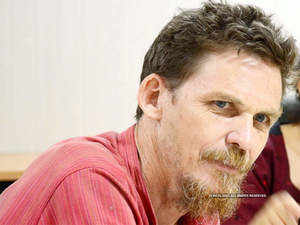
“There is a lot of talk about reopening of the economy, but there is no talk on reopening of public services. That is much more important and more urgent,” Dreze, a developmental economist, said during a video chat organised by the Azim Premji University. MUMBAI: Activist-economist Jean Dreze on Tuesday underlined the need to look at public service delivery and rued that there is no importance being given to this aspect which is crucial for the poor. He said the entire efforts seem to be concentrated on opening up the economy with scant attention to the woes of the poor.
After over two months of lockdown with an aim to restrict the spread of the COVID-19 infections, the country has started opening up gradually with an intent to revive the economy from this month.
“There is a lot of talk about reopening of the economy, but there is no talk on reopening of public services. That is much more important and more urgent,” Dreze, a developmental economist, said during a video chat organised by the Azim Premji University.
Drawing from what he sees in Jharkhand’s Latehar district, Dreze said important public service institutions like health centres and OPDs are non-operational across the country except to look after the COVID-19 patients, the mid-day meal programme is shut depriving kids of essential food and the schools and ‘anganwadis’ are also shut.
“This may not affect the middle class, but for poor people, this is a disaster to go without all these services for three months. It is extremely serious,” he said.
He said all the support channels for the poor are cutoff and sought urgent interventions in the matter.
The only exception to this are the ration shops and works under the Mahatma Gandhi National Rural Employment Guarantee Scheme (MNREGS) he said, adding that these are welcome moves.
A network of researchers from the varsity in collaboration with over 100 civil society organisations have developed a COVID-19 assessment and response dashboard that provides information on food security, healthcare, financial access, livelihoods and social relations.
Data for over 200 blocks from Jharkhand, Bihar, Chhattisgarh, Madhya Pradesh, Uttar Pradesh, Odisha, Rajasthan, West Bengal and Maharashtra have been made available as part of the effort, a statement said.
Source: indiatimes.com

